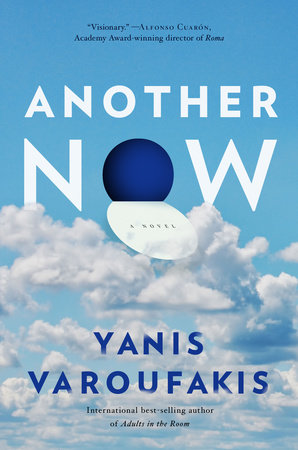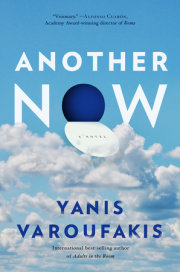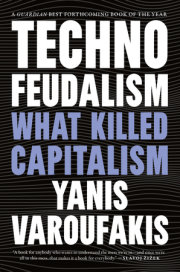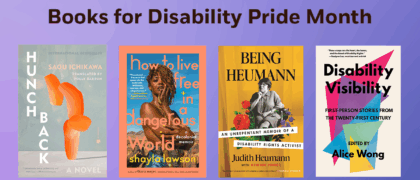A year ago today we buried Iris in a red and black coffin. Red for the revolutionary fire constantly blazing in her belly. And black to remind us, as she kept doing, of the irreducible dark side in us all.
Iris’s funeral was as she would have wanted it, save for Eva’s absence. The tributes provided a fitting encomium for my extraordinary friend but the words washed over me. Some twenty years had passed since I had last seen Iris and Eva together. They had been sitting on Iris’s patio, Eva holding her usual glass of Pinot Grigio, Iris scolding her in tirades punctuated only by mouthfuls of chilled vodka.
Why on earth did Iris ever take Eva under her wing? I recall wondering.
For a woman who could never have conceived of a good market, a noble war or an unjust strike, it was an improbable friendship. Eva was a recovering investment banker turned true-blue, dry, academic economist. Far from having a winning personality, if anything she exemplified Oscar Wilde’s definition of the cynic – she who knows everything about prices but nothing about values. ‘And I’m not even sure she has a
clue about prices!’ Iris once said teasingly in her presence. Nonetheless, as Iris’s casket was being lowered into the ground, Eva’s absence weighed heavily.
With Iris and Eva gone, Costa was the only other one left of our old gang. On the day Iris died I had messaged him twice, using an old number I still had. To no avail. Resignedto endure the funeral without him, I was surprised when I glimpsed him there. He was not easy to spot, a solitary figure leaning against a plane tree, watching from a distance as Iris descended to her resting place.
Once the mourners began slowly to disperse, I approached him, and his face thankfully brightened up. Though his youthful cheerfulness was all but gone, his eyes still glimmered with his characteristic blend of brilliance and sentimentality. But as we talked he seemed harried and close to paranoia, focused terribly on ‘the diary’ and how important it was that it should not fall into ‘the wrong hands’. It was then that I realized Iris had been in cahoots with him before she had summoned me to the hospice, two weeks before her body gave in to the cancer.
Iris’s summons arrived in late June 2035, jolting me out of a two-decade-long seclusion. The last time I had seen either of them was in August 2015 as I was passing through Brighton for one last time, my life in the early stages of an unrelated meltdown. As soon as I entered her room in the hospice, Iris struggled to sit up, determined to muster all her fading energy to receive me. Dismissing any preliminaries, she pointed to a diary sitting on her bedside table and gestured for me to take it. ‘It comes with a directive and an injunction,’ she whispered. The directive was unequivocal. I was to focus on the ‘dispatches’ in the diary and use them ‘to open people’s eyes to possibilities they are incapable of imagining unaided’. As for the injunction, she made me promise I would not reveal any of the ‘technical details’ in it. ‘In due course you will know what I mean,’ she muttered. Finally, in a bid to lighten the atmosphere, she told me with typical bluntness and bossiness, ‘Get stuck in to it the moment I’m dead and buried.’ Eager notto burden her further, I held her hand and made the promise she had demanded.
Little did I know that ‘in due course’ meant Costa appearing at her funeral to deliver my instructions, which he did breathlessly in a quiet corner of the graveyard car park. When reading Iris’s diary, he said, I had to take precautions against the corporates: ‘Iris wanted you to have her diary. She wanted our story told so that the world understands there
is an alternative. But I know she warned you of the one, strict condition: none of the detailed information in the diary regarding my technologies should fall into their hands. Tell me that you understand!’
I reassured him that I did. He stared into my eyes to confirm my sincerity. ‘We had it wrong all these years, Yango,’ he said eventually. ‘We knew that everything about us was being commodified. That everything we did and said was being captured and sold on. But what we had
not realized was that the process of digitizing everything about us was proletarianizing everyone, including the bosses. Think about it, Yango. Think about it.’
It had been a while since I had found myself on the receiving end of such an outburst, but it seemed somehow appropriate, given that we had just laid to rest the greatest agitator of revolutionary politics I had ever known.
‘What does it mean to be a proletarian, really?’ Costa continued, without waiting for a reply. ‘Let me tell you. From bitter experience. It means you are a cog in a process of production that relies on what you do and think while excluding you from being anything but its product. It means the end of sovereignty, the conversion of all experiential value into exchange value, the final defeat of autonomy.’Without a clue as to why he was telling me all this, I agreed. ‘This is why I am
still here, Yango. Why I stayed behind. To prevent our final defeat at those bastards’ hands. I can’t stop them inventing it for themselves but I’ll be damned if I let them grab mine and use it to squeeze the last drop of humanity out of us all.’
,
Satisfied that I had been adequately briefed, Costa took a device from his backpack and placed it firmly in my hands. ‘It’s a dampening field device. Idiot proof,’ he said with a hint of contempt. He showed me how to switch it on to prevent the ‘bastards’ from gaining access to Iris’s diary.
Hoping to catch up properly after all these years, I suggested dinner or at least a drink. Costa simply stared into my eyes, gave me a tight hug and left without looking back.
Watching him walk away, his eyes fixed on the ground, the lyrics of a melancholy Greek song I had learned as a teenager sprang to mind.
Late last night I saw a friend wandering A hobgoblin-like relic on a motorbike Stray dogs chasing after him Through deserted streets I was reminded in turn of a solemn middle-aged visitor in a shabby raincoat who had stopped at our home in Athens one winter night to give my father some tattered old communist literature. ‘We shared a police cell in 1946,’ Dad whispered sadly when his comrade later left into the cold, wet night.
But Costa’s words reminded me of someone else: Sam, the main character in an old sci-fi flick. A miner slaving away on thedark side of the moon, Sam is driven mad when he discovers that he is one of many clones that have been created by his company as a supply of cheap, disposable workers, and that he has been duped with implanted memories into believing his long-dead family are still alive back on earth, awaiting his return. Science fiction is the archaeology of the future, a leftist philosopher once said. It is now on the verge of offering the best documentary of our present.
Friends’ funerals usually leave me numb but functional. But on returning from the cemetery after Iris’s, I struggled to steal back into my present. The leather-bound diary that Iris wanted me to have lay tantalizingly on the desk. I ignored it for the rest of the day, but in the early hours of the following morning I surrendered. I sat at the desk and opened its heavy cover.
Two red arrows filled my vision as my hybrid-reality contact lenses detected audio-visual content in the diary and kicked in. Instinctively I gestured to switch off my haptic interface and slammed the book shut. Costa had explicitly instructed me to set up the dampening field device before opening the diary. Chastened by my failure to do so, I went to fetch it. Only once the device was on the desk, humming away reassuringly, was I able to delve into Iris’s memories in that rarest of conditions – privacy.
It took nine days and nights to go through the diary, taking in Iris’s handwritten remembrances as well as all the audio- visual content embedded in its pages. Halfway through I stumbled upon the extraordinary events of 2025 involving her and Costa and Eva, and came to understand why Iris was so keen for their story to be told. Once I had been through it all, for two long months I struggled to fend off the urge to do whatI always do when upset or destabilized: to write. Instead, I used those sixty days to digest the material properly, to read, to watch and to listen to it again and again and again.
The tale contained in Iris’s diary shook me deeply. Iris knew this would be so, just as she knew that I would find it impossible not to write it up, for better or for worse. The book you are about to read, dear reader, took another nine and a half months to write. And so it is, exactly a year after we buried Iris in that red and black coffin, that I am now ready, with a single keystroke, to deliver the manuscript to her publisher. If only there was some way she could tell me what I have missed.
The bulk of the diary, and the majority of what follows, is taken up with a series of dialogues. It was these intellectual and political debates that concerned Iris, far more than the events that led to them. In an attempt to do full justice to my friends’ ideas and points of view, I have found it necessary to recount these debates as if I had been witness to them myself, pretending to inhabit a past from which I was mostly absent, fleshing out conversations I never participated in. In the process, I have necessarily imputed thoughts and feelings to Iris, Eva and Costa that are the product of my imagination – but only because I felt such additions were essential to conveying the essence of their experiences, of who these good people truly were. For all my liberties, and failures, I apologize profusely and happily.
Yango Varo, 10.05 a.m. Saturday 28 July 2036
Copyright © 2021 by Yanis Varoufakis. All rights reserved. No part of this excerpt may be reproduced or reprinted without permission in writing from the publisher.





